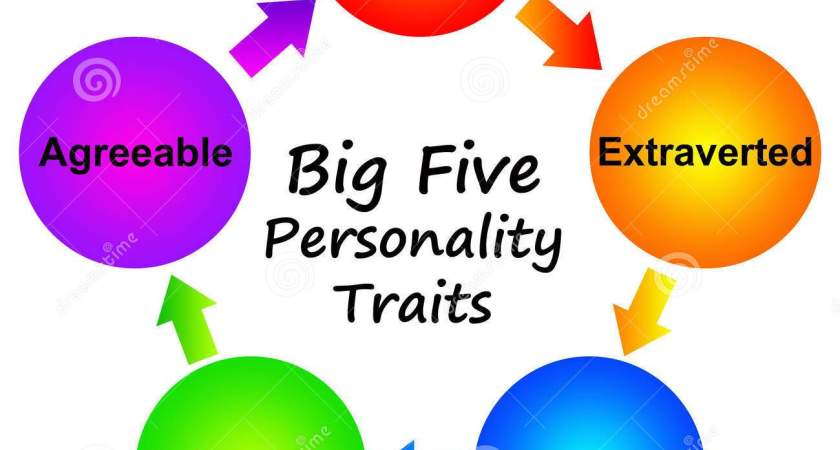Personality is the totality of a person.
We all have different characteristics , attitudes and behaviours in us . It all matters if we are influenced by our environment or cultural belief.
Personality is the totality of a person. It is the physical attribute a person possess to contribute to the society . It deals with the essence of our being and our influence with the surroundings. Personality deals with the way we dress, talk, eat, relate with people . It involves our academic life , vocational aspirations and our inter personal relationships with others . It is defined as the set of habitual behaviours, cognition ’ s and emotional patterns that evolve from environmental and biological factors.
What really matters in our personality is the way we are able to use it to influence others , either in a positive or negative way .
There are people who are reserved , optimistic and smart ; there are others who love entertainment and sports.
There are people who are smart , intelligent but rugged. All these are what personality entails.
There are many ways to measure personality , but psychologists have mostly given up on trying to divide humanity neatly into types . Instead , they focus on personality traits .
The most widely accepted of these traits are the Big Five :
Openness
Conscientiousness
Extraversion
Agreeableness
Neuroticism
The Big Five were developed in the 1970 s by two research teams . These teams were led by Paul Costa and Robert R . McCrae of the National Institutes of Health and Warren Norman and Lewis Goldberg of the University of Michigan at Ann Arbor and the University of Oregon , according to scientific american .
The Big Five are the ingredients that make up each individual ’s personality . A person might have a dash of openness , a lot of conscientiousness , an average amount of extraversion , plenty of agreeableness and almost no neuroticism at all . Or someone could be disagreeable, neurotic , introverted , conscientious and hardly open at all . Here’s what each trait entails:
Openness
Openness is shorthand for “ openness to experience. ” People who are high in openness enjoy adventure. They’ re curious and appreciate art , imagination and new things . The motto of the open individual might be “ variety is the spice of life. “
People low in openness are just the opposite : They prefer to stick to their habits , avoid new experiences and probably not the most adventurous eaters . Changing personality is usually considered a tough process , but openness is a personality trait that is been shown to be subject to change in adulthood .
Conscientiousness
People who are conscientious are organized and have a strong sense of duty. They are dependable , disciplined and achievement -focused . You will not find conscientious types jetting off on round – the -world journeys with only a backpack; they are planners .
People low in conscientiousness are more spontaneous and freewheeling. They may tend toward carelessness . Conscientiousness is a helpful trait to have , as it has been linked to
achievement in school and on the job .
Extraversion
Extraversion versus introversion is possibly the most recognizable personality trait of the Big Five . The more extravert someone is , the more of a social butterfly they are. Extraverts are chatty , sociable and draw energy from crowds. They tend to be assertive and cheerful in their social interactions .
Introverts, on the other hand, need plenty of alone time , perhaps because their brains process social interaction differently. Introversion is often confused with shyness, but the two are not the same. Shyness implies a fear of social interactions or an inability to function socially . Introverts can be perfectly charming at parties — they just prefer solo or small -group activities .
Agreeableness
Agreeableness measures the extent of a person’s warmth and kindness. The more agreeable someone is the more likely they are to be trusting , helpful and compassionate. Disagreeable people are cold and suspicious of others , and they are less likely to cooperate .
Men who are high in agreeableness are judged to be better dancers than women . They are envious , which can lead to people being perceived as not agreeable , it was found to be the most common personality type out of the four studies by a report published in August 2016 in the journal Science Advances . Envious people feel threatened when someone else is more successful than they are.
Neuroticism
To understand neuroticism , look no further than George Costanza of the long- running sitcom “ Seinfeld . ” George is famous for his neuroses , which the show blames on his dysfunctional parents . He worries about everything , obsesses over germs and disease and once quits a job because his anxiety, over not having access to a private bathroom is too overwhelming .
George may be high on the neuroticism scale , but the personality trait is real . People high in neuroticism worry frequently and easily slip into anxiety and depression. If all is going well , neurotic people tend to find things to worry about. One 2012 study found that when neurotic people with good salaries earned raises , the extra income actually made them less happy .
In contrast, people who are low in neuroticism tend to be emotionally stable and even -keeled . Unsurprisingly, neuroticism is linked with plenty of bad health outcomes. Neurotic people die younger than the emotionally stable , possibly because they turn to tobacco and alcohol to ease their nerves .
Possibly the creepiest fact about neuroticism , though , is that parasites can make you feel that way . And we ’re not talking about the natural anxiety that might come with knowing that a tapeworm has made a home in your gut. Undetected infection by the parasite
Toxoplasma gondii may make people more prone to neuroticism .,
Other personality measures
Though personality types have fallen out of favor in modern psychological research as too reductive , they ’ re still used by career counselors and in the corporate world to help crystallize people’s understanding of themselves. Perhaps the most famous of these is the Myers- Briggs Type Indicator . A questionnaire based on the work of early psychologist Carl Jung sorts people into categories based on four areas : sensation ( S ), intuition ( N), feeling (F ) and thinking (T ) , as well as extraversion (E ) and introversion (I ).
Sensing and intuition refer to how people prefer to gather information about the world , whether through concrete information ( sensing ) or emotional feelings (intuition ). Thinking and feeling refer to how people make decisions . Thinking types go with logic , while feeling types follow their hearts.
Does Personality Change ?
Research shows that personality could change through therapy , social or moral behaviour. If you are into a relationship where your behaviour or ego alters your spouse’s, there may be a cause for your personality to change or to be altered . People sometimes try to change or adopt a kind of behaviour to please or get something . A society where your attitudes and behaviour depends on how you are being accepted can go a long way in altering or completely changing You.
You got to do what you got to do to either be influenced or be an influence to the society and this can only be achieved through your personality traits .
By Okenwa Oluomachukwu Sandra.
Additional credit by Live Science.




